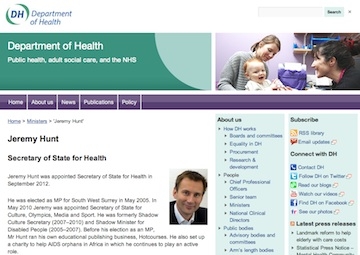
The Government has announced there will be a cap on the amount people will have to contribute towards personal care.
A cap would be introduced in April 2017 up to a maximum costs of £75,000 but would not include accommodation or food costs.
The cap announced by Health Secretary Jeremy Hunt was far higher than Andrew Dilnot, head of a government-appointed commission, had originally proposed.
He had suggested a cap of £35,000 which was estimated to affect 3.2m pensioners. However, the Government felt this would create higher costs for the taxpayers.
The cap will be funded partly by extending the freeze on the threshold of inheritance tax at £325,000 by three years from 2015/16.
Chris Horlick, managing director of care at care annuity provider Partnership, said: "We welcome the Government's announcement which taken in the round alongside the reforms proposed in the draft bill present another important step in reforming adult social care.
{desktop}{/desktop}{mobile}{/mobile}
"However, it is essential that people, particularly self-funders who form the majority of people in the adult social care system, are aware that it is not a complete cap on all care costs and therefore get specialist care fees advice at the earliest opportunity in order to find appropriate solutions to pay for their care costs."
Frances O'Grady, general secretary at the Trade Union Congress, said: "This review of social care is long overdue and we are pleased that the Government is beginning to implement at least some of Mr Dilnot's proposals. However, the proposed cap of £75,000 is far too high and will be unaffordable for many families. The TUC's preference remains for a social care system that is provided free for those who need it."
• Want to receive a free weekly summary of the best news stories from our website? Just go to home page and submit your name and email address. If you are already logged in you will need to log out to see the e-newsletter sign up. You can then log in again

